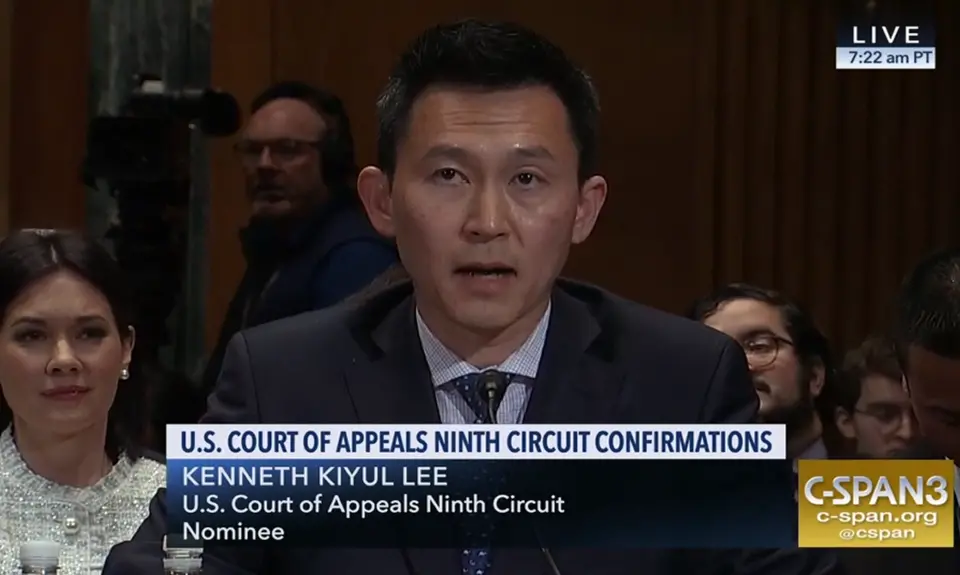“Confirmed Judges, Confirmed Fears” is a blog series documenting the harmful impact of President Trump’s judges on Americans’ rights and liberties. Cases in the series can be found by issue and by judge at this link.
Judge Kenneth Lee was the deciding vote in a divided Ninth Circuit panel ruling dismissing a claim that an employer had created a racially hostile work environment. The March case is Farrens v. Esper.
James Farrens alleged that Department of Defense field office chief Debra Habel had discriminated against him based on his Japanese ancestry when she reassigned him to his detriment. According to witnesses, Habel had said that “Asians could not be trusted even if they were naturalized citizens because they were still loyal to their country and their culture was different.” She had also said that a particular security officer could not be trusted “because she is Chinese.” Witnesses also testified that she had grown agitated when she saw Asian Americans employees working near a certain security container, and that she had held up security clearances for a contractor whose director was Chinese.
All three judges on the panel agreed that Farrens had enough evidence to support a claim that Habel had reassigned him because he was Asian American. But Judge Lee cast the deciding vote on another important issue, ruling that Farrens could not pursue his claim that he had been subject to a hostile work environment based on his race.
Job reassignment was not the only thing that had happened to Farrens during the relevant time period covered by the lawsuit (January 2011 onward). One supervisor had refused to speak to him about his discrimination claims. Another had mocked him for needing to use the restroom. Lee ruled that these allegations weren’t of a racial nature and could not be used to support his claim of a hostile working environment. Therefore, in his view, Farrens was not permitted to cite any previous actions as evidence of an ongoing hostile work environment.
But as Judge Matthew Kennelly (a district judge sitting on the panel by designation) explained in dissent, a reasonable juror could still conclude that actions within the relevant time period that were not explicitly racial in nature were nevertheless based on race. In addition, Farrens had shown sufficient evidence of a continuing violation because a series of smaller events can have a cumulatively discriminatory effect. In that sense, actions taken before a relevant time period help establish the existence of an ongoing violation that in-period events were manifestations of.
Before the January 2011 time period at issue in this case, Habel had increased Farrens’ workload, ordered that his work be reviewed to see if he “was being honest,” reassigned him to tasks he had already started, assigned him less prestigious tasks than his colleagues, and criticized his work in front of colleagues. Habel’s blunt assertion during the relevant time period that “Asians can’t be trusted” puts these actions in a new light, so a reasonable juror could perceive an ongoing hostile work environment based on race.
However, Judge Lee prevented Farrens from making that claim in court.
